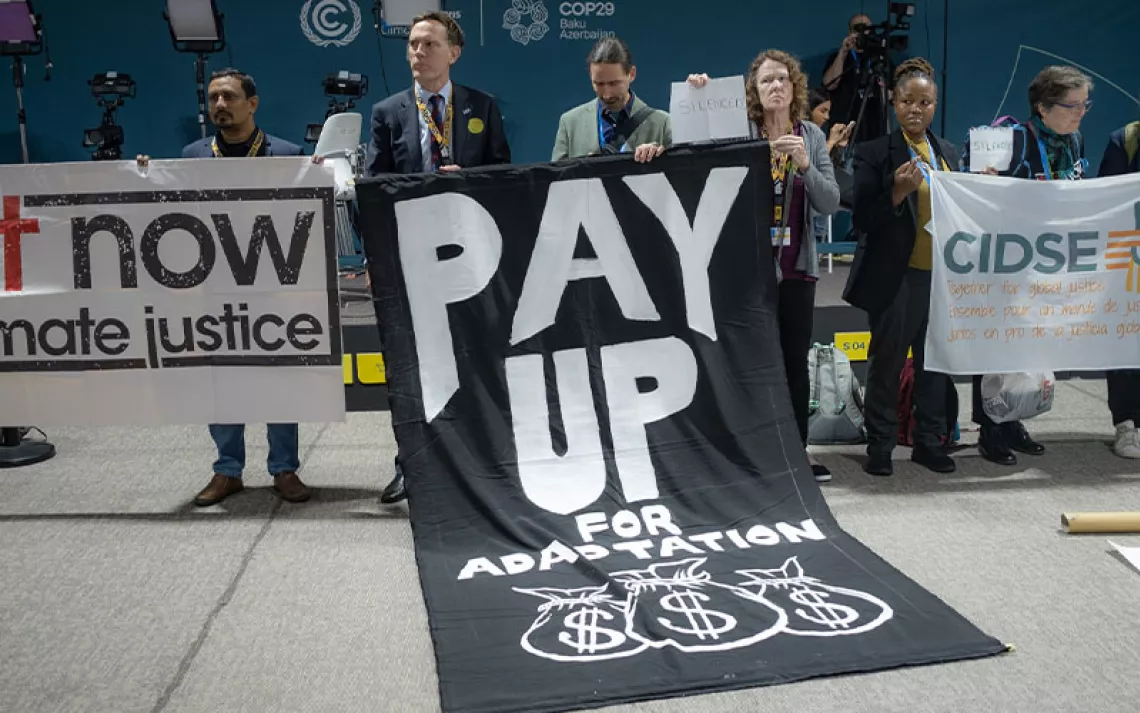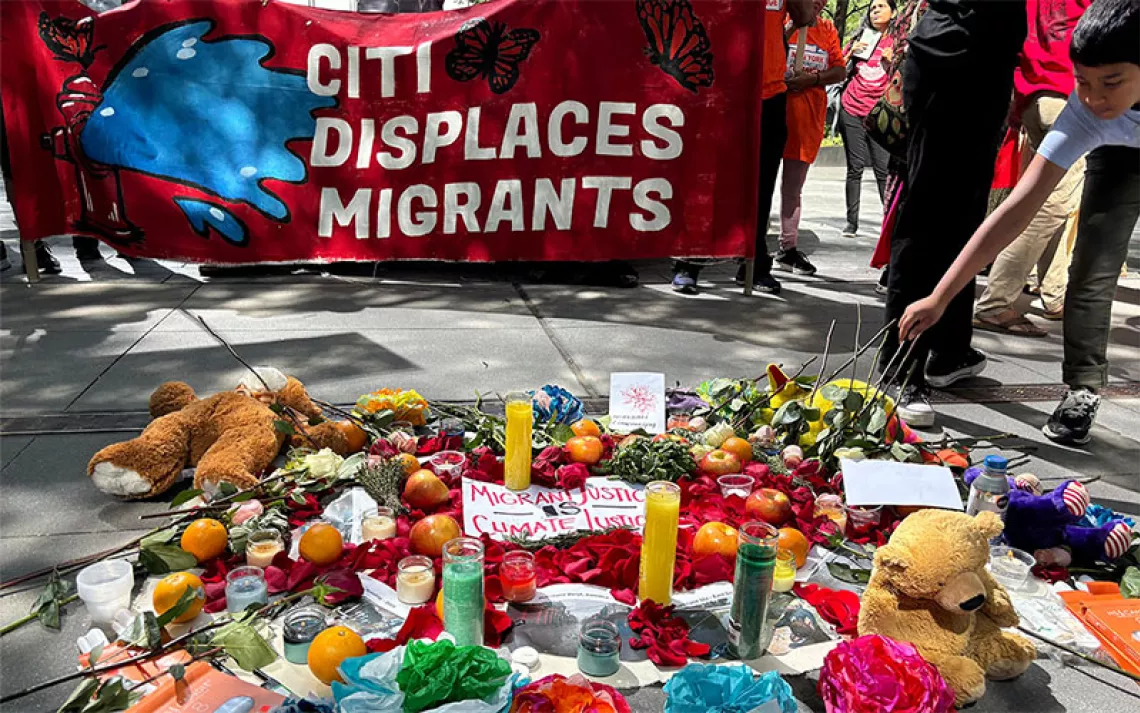Campaign to Divest From Wells Fargo Gains Traction
Seattle and Los Angeles have taken steps to end their relationships with the bank

Protesters in front of Wells Fargo's San Francisco headquarters | Photo by Jane Richey
Last October, TransCanada's Keystone pipeline leaked over 210,000 gallons of tar sands bitumen onto South Dakota farmland. Despite the environmental cost, Wells Fargo Bank and other financial institutions continue to fund fossil fuel projects like the Keystone pipeline. Over the past three years, big banks invested nearly $300 billion in the most carbon-intensive sectors of the industry.
In 2017, the Sierra Club launched a campaign to pressure financial institutions to withdraw financing for fossil fuels. Over 25,000 people pledged to pull their funds out of Wells Fargo and other banks. In November, more than 100 Sierra Club members and supporters gathered outside Wells Fargo's San Francisco headquarters to urge the bank not to renew its $1.5 billion loan to TransCanada, delivering a petition with nearly 160,000 signatures. Wells Fargo renewed the loan anyway.
Still, the movement has had some important victories: Seattle's city council voted to end its relationship with Wells Fargo, denying the bank $3 billion in annual deposits, and the city of Los Angeles took steps to terminate its accounts.
"Ultimately these banks are accountable to people, and to their customers," said Ben Cushing, an organizer with the Sierra Club's Beyond Dirty Fuels initiative. "Public pressure can work."
This article appeared in the May/June 2018 edition with the headline "Don't Bank on Fossil Fuels"
 The Magazine of The Sierra Club
The Magazine of The Sierra Club



